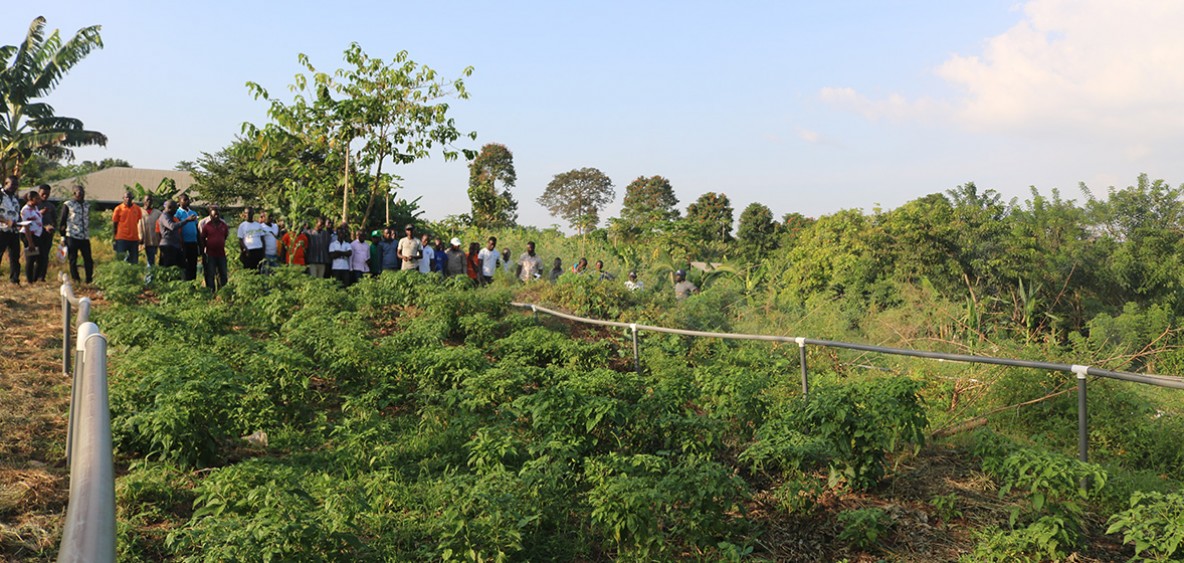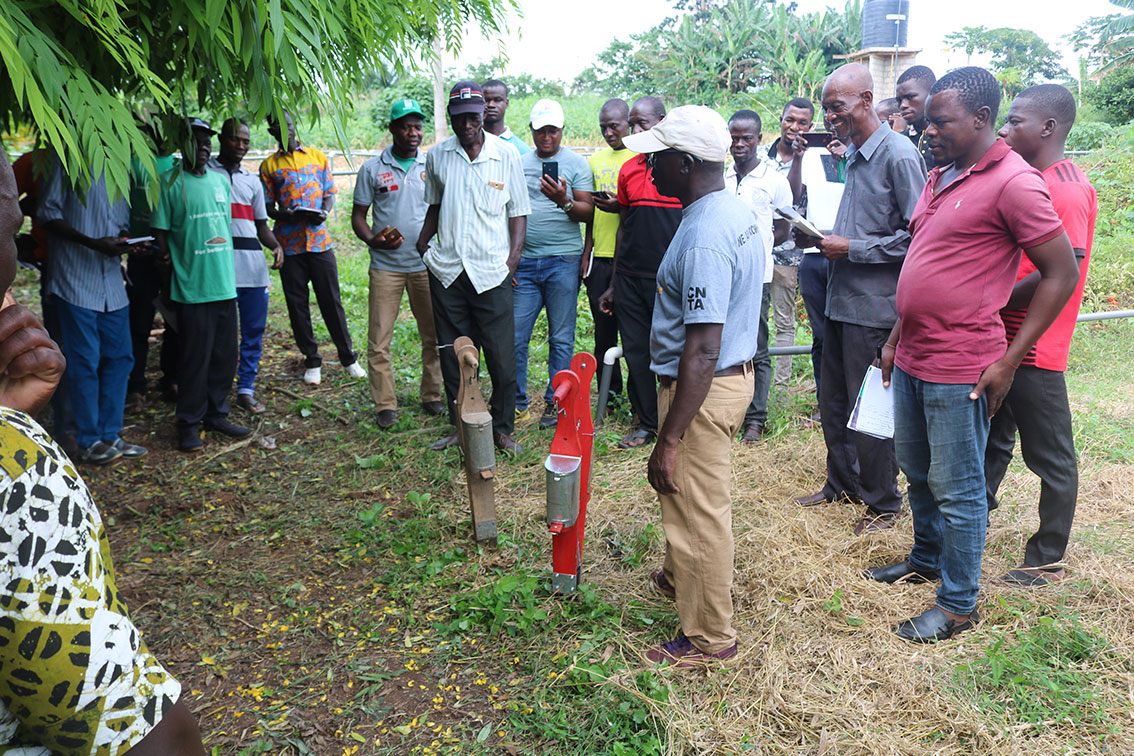
On 18-23 November 2019, over 55 Agricultural Extension Agents and lead farmers met at the No Till Centre in Amanchea, Ghana for a training session, conducted by the RFS Ghana project, on Conservation Agriculture principles and practices.
The RFS Ghana project, the Sustainable Land and Water Management Project (SLWMP), works to promote improved sustainable land and water management practices in Ghana’s Northern Savanna with the ultimate goal of realising a diversified and resilient economic zone in the north with significant environmental benefits. The project is being implemented using an integrated landscape management approach by four Implementing Agencies: the Ministry of Environment, Science Technology and Innovation; the Environmental Protection Agency; the Directorate of Crop Services under Ministry of Food and Agriculture and Forestry Services; and Wildlife Division of the Forestry Commission.
A key component of the RFS Ghana project is capacity development of both national and sub-national institutions and actors in order to improve adoption of successful approaches and technologies for sustainable land management. Through the project, capacities of public extension service providers, as well as lead farmers who provide farmer-to-farmer extension services, are being built through a series of training sessions to improve extension delivery in support of a transition to more sustainable and productive agricultural practices.
On 18-23 November 2019, the fourth annual training session on Conservation Agriculture (CA) was held at the No Till Centre in Amanchea in the Ashanti Region of Ghana. The training sought to enhance knowledge of CA principles and practices and to support peer-to-peer extension within targeted communities.

To encourage free exchange of information and maximise participation, Mr. Kofi Boa, Director of the No Till Centre, utilised a participatory learning approach when facilitating the modules. Extension workers and farmers went on field tours, visited demonstration plots, and received hands-on practical training with an emphasis on a “learning by doing” approach to the application of new technologies and practices. Training modules covered the principles and practices of CA, on-farm water harvesting, soil erosion control, land preparation and planting, soil health, and the development of CA action plans by participants.
The training session emphasized three main principles of CA: minimum soil disturbances, permanent soil cover and crop diversification (rotation and intercropping). Mr. Boa explained to farmers and extension officers that CA seeks to mimic the natural environment of optimum land conditions, meaning promoting and supporting soil that is stable, fertile, and with adequate moisture and living organisms. Participants were taught how to prepare land using a no tillage and/or minimum tillage approach in order to retain 50 – 60% of crop residue as land cover. Participants were also introduced to two main types of soil cover: “living cover” (crops and cover crops) and mulch (crop residue and prunes from trees).
Through a hands-on approach to extension worker skills development, the training sessions have created a platform through which new technologies and practices can be implemented, validated and integrated into existing local agricultural practices. So far, the rate of success from the RFS training sessions has been promising: over 55 participants attended the latest session and were awarded with a certificate of participation, including 36 lead farmers, 12 district Agricultural Extension Agents (AEAs) and 7 Agricultural Officers from the national level. At the end of the session, all participants reported feeling well-equipped with the knowledge and skills necessary to enable the replication and scaling-up of CA practices throughout the region.
Subscribe to our monthly newsletter to receive updates on stories directly from the field across all our projects, upcoming events, new resources, and more.